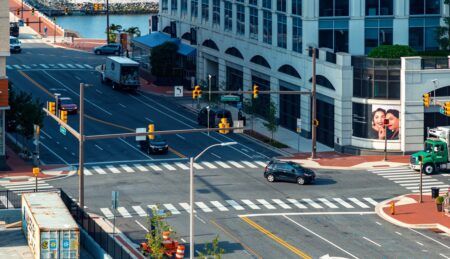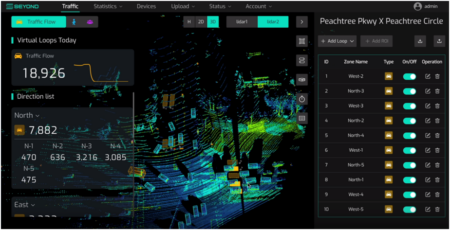In a new report, the UK’s leading progressive think-tank, the Institute for Public Policy Research (IPPR), says that transport in London is at a ‘tipping point’ due to the availability of new digital technologies.
The IPPR argues that the city is at a crossroads between two futures: one where the transport network is increasingly gridlocked, the air grows ever dirtier and the cost of accessing good transport increases; or one where all can harness the best of digital technology, reducing journeys and air pollution, and opening up new opportunities to make London a more attractive place to live.
The report investigates how new technology could help or hinder efforts to affect more sustainable forms of travel behavior, and is already having a tangible impact on the way that people move around the city. The report notes that new private hire technology, such as Uber, and new goods delivery patterns driven by companies like Amazon, are just a first glimpse of the size of the revolution that digital technologies will unleash on London’s transport system. Future technologies, such as autonomous vehicles and Mobility as a Service (MaaS) platforms, promise even bigger and more rapid change.
The IPPR study says there are potentially many positive effects of including these services into London’s integrated transport network, and that Mayor of London Sadiq Khan needs to seize the opportunity. The report suggests:
Car clubs, like DriveNow and Zipcar, should be a key part of London’s transport system and the Mayor’s Transport Strategy should include measures for how car clubs can help achieve key transport objectives;
Developing an explicit framework for new travel markets, in collaboration with operators of new transport services, such as flexible car clubs and demand-responsive taxi services;
Transport for London (TfL) and boroughs should work with operators to develop borough-by-borough agreements to enable car club development;
Setting out a set of positive outcomes for the transport system, and how each new service and mode can contribute to support the uptake of more sustainable travel;
Making TfL the central hub for travel data in London to help target areas in need of more efficient means of transport and create a more equal system as a whole;
Appointing a chief digital officer for London who anticipates the potential impacts of digital technologies and ensures the city’s government takes action on these to modernize the transport system.
“London is on the cusp of major changes to the way people move around the city. Shared transport and digital technology have the potential to drive positive transport outcomes and overcome London’s transport difficulties, thereby improving the city’s spaces and Londoner’s lives,” explained Laurie Laybourn-Langton, IPPR research fellow.
“Public intervention is required to realize these ends, and a window of opportunity currently exists in which action can and must be taken by London’s government. When this window closes, it will significantly increase the chances of a negative path dependence upon which technology will worsen existing problems, such as air pollution and congestion, and create new ones.”




